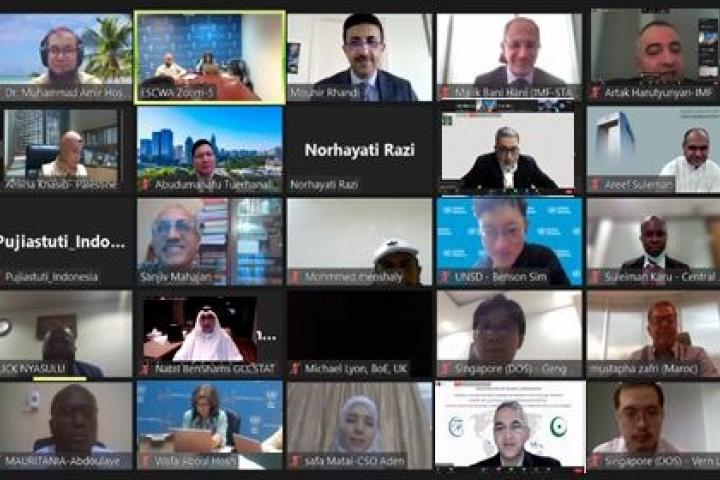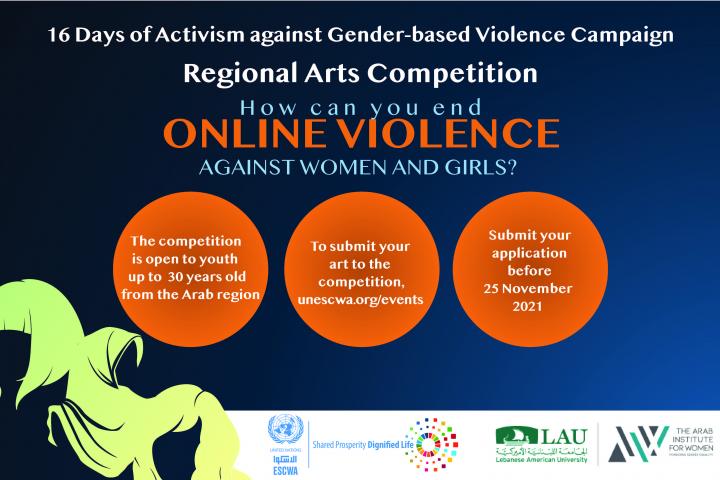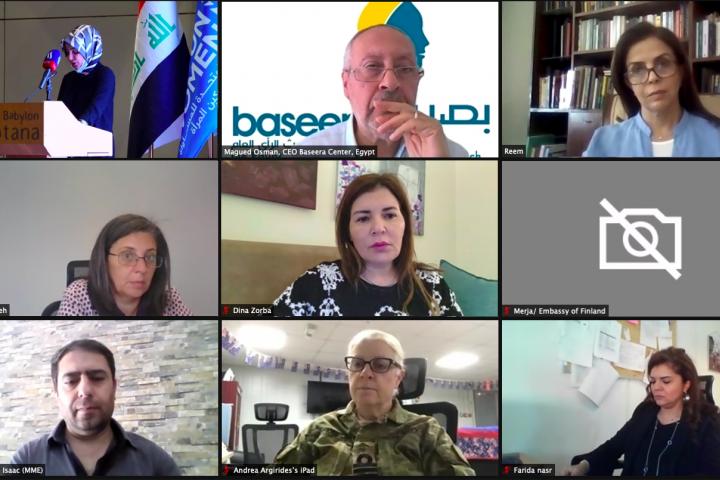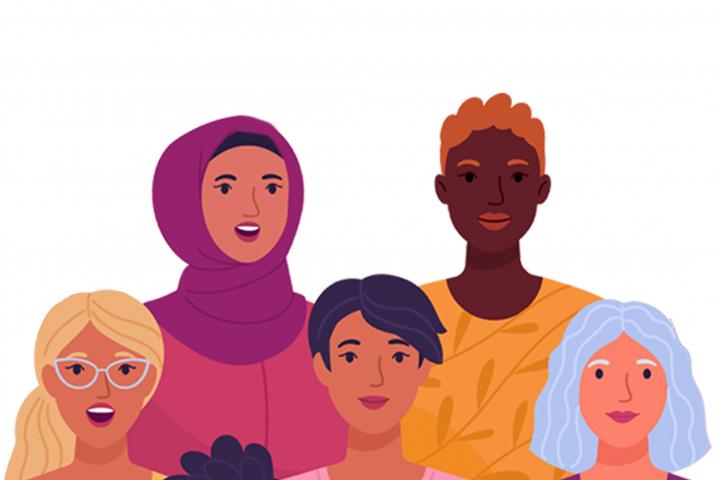The Muscat Declaration: Towards the Achievement of Gender Justice in the Arab Region
A broad framework for gender equality adopted by member States at the seventh Session
of the ESCWA Committee on Women
Beirut, 27 January 2016 (Communication and Information Unit)-- The "Muscat Declaration: Towards the Achievement of Gender Justice in the Arab Region” was adopted by ESCWA member States on 21 January 2016 as a broad framework for the achievement of gender equality. This newly adopted concept of gender justice exceeds the traditional concept of gender equality that limits equality to the elimination of all forms of discrimination against women, to include the element of accountability to ensure the existence of effective mechanisms to eliminate discrimination. The Declaration defines gender justice as both a formal process and a substantive outcome. The formal process of seeking gender justice focuses mainly on accountability, while the ultimate substantive outcome is a society in which women enjoy equality with men.
The Declaration clearly pointed out that the achievement of gender justice in the Arab region requires conciliation between the concepts of justice and gender in religious discourse, therefore encouraging the renewal of religious discourse through cooperation between Arab countries.
The Declaration was adopted at the conclusion of the seventh session of the ESCWA Committee on Women, which was hosted by the Sultanate of Oman in Muscat on 20 and 21 January 2016, under the auspices of Her Highness Doctor Mona al-Fahd al-Said. The session gathered political and diplomatic officials and representatives of national women machineries at the ministerial level. Representatives of regional organizations, such as the League of Arab States, United Nations agencies and civil society organizations also attended the session as observers.
Justice, right of women and girls
The session also addressed the right of women and girls to access justice in the Arab region. In a ministerial panel on the subject, participants reviewed the efforts of member States to promote the right of women and girls to access justice by amending discriminatory laws; establishing legal and judicial assistance mechanisms; preparing programmes to empower women legally; and including the concepts of gender and women's rights in the platform for training lawyers, judges and law enforcement officials.
In this context, Ms. Lana Baydas, First Social Affairs Officer at the ESCWA Centre for Women, laid forward the challenges impeding the access of women and girls to justice at the legislative and institutional levels. She explained that although most Arab Stateshave ratified international human rights agreements and the Convention on the Elimination of All Forms of Discrimination against Women (CEDAW), this has not been translated adequately in legal texts, where there are still a lot of personal status laws that discriminate against women.
Ms. Baydas also pointed out that even though some Arab States have enacted laws to protect women and girls from being trafficked, there still is a knowledge gap leading to the poor enforcement of these laws
The ministerial panel concluded its discussions by reiterating the commitment of member States to ensuring the access of women and girls to justice by taking integrated reformative actions, including the amendment of discriminatory laws in accordance with international standards, and the provision of legal aid and assistance to facilitate the access of women to justice institutions.
Women, peace and security in the region
The Committee on Women also dealt with issues relating to women, peace and security; particularly the challenges faced by women due to the armed conflicts and instability in a number of Arab countries. In a round-table discussion on the subject, ESCWA presented the results of two relevant studies: one on the socioeconomic impact of conflict on Arab women and girls, and the other on the implementation in the Arab region of Security Council resolution 1325 (2000) on Women, Peace and Security
Participants warned on the serious implications of conflict on social cohesion and on the role of Arab women in ensuring the safety, stability and prosperity of their own countries. They recommended carrying forward the assessment of the impact of armed conflict on Arab women, as well as the measurement of the impact of the current economic situation on society as a whole. They also recommended member States to develop executive and legislative frameworks and institutional regulations relating to peace and security issues in cooperation with ESCWA and other relevant regional and international bodies. Participants stressed the importance of consolidating partnership between ESCWA and the League of Arab States and other regional and international organizations to ensure the rights of Arab women in times of war and peace.
The 2030 Agenda for Sustainable Development
The ESCWA Committee on Women also discussed ways to achieve the gender-related goals set out in the 2030 Agenda for Sustainable Development, at the national and regional levels. In a ministerial panel discussion, ESCWA presented those goals as a new road map to achieve gender equality and the empowerment of women and girls.
Participants discussed ways to align international targets with national priorities and elaborate gender-sensitive national development plans consistent with the 2030 Agenda. They stressed the important role of national women machineries in the implementation of goals related to the advancement of women in the 2030 Agenda. Sheikh Mohammed Said al-Kalbani, Minister of Social Development in the Sultanate of Oman, who chaired the panel discussion, reiterated the importance of linking the different dimensions of sustainable development for the advancement and empowerment of Arab women and girls, within the very ambitious 2030 Agenda. Ms. Mehrinaz el-Awady, Deputy Director of the ESCWA Centre for Women, expressed the readiness and willingness of ESCWA to support member States in the implementation of the 2030 Agenda upon their request.
****
For more information, find ESCWA news on:
Website: www.unescwa.org Facebook: www.facebook.com/unescwa Titter: @ESCWACIU



